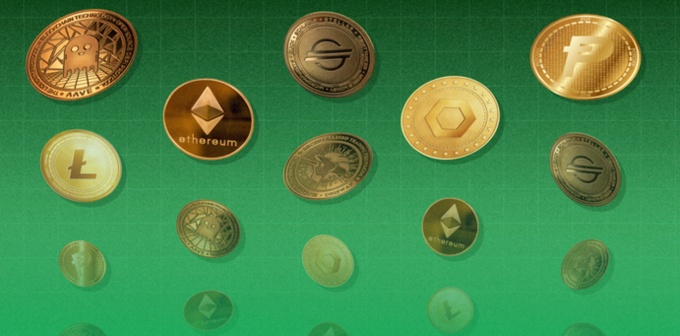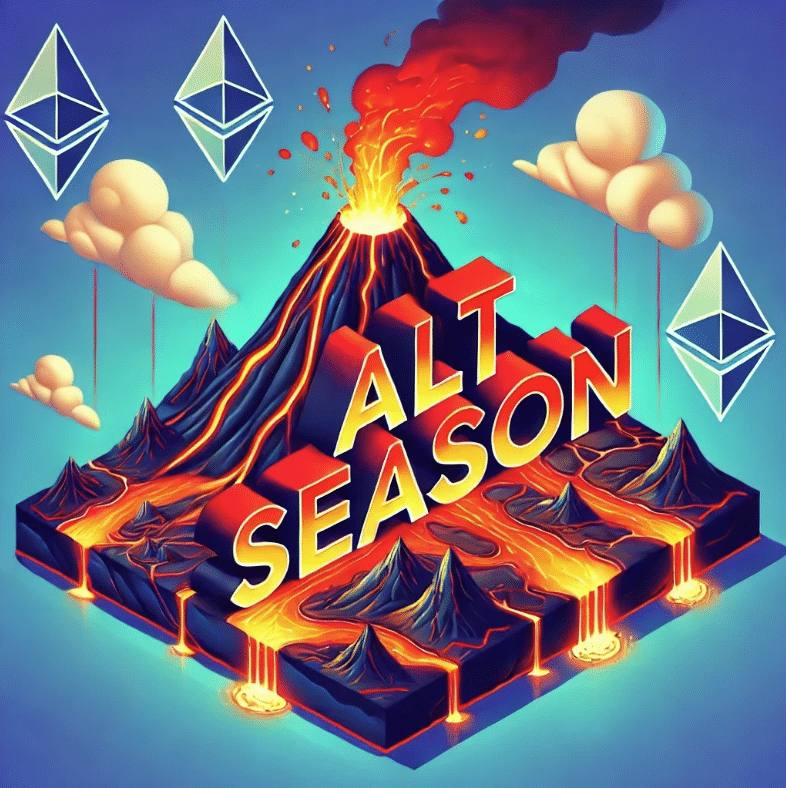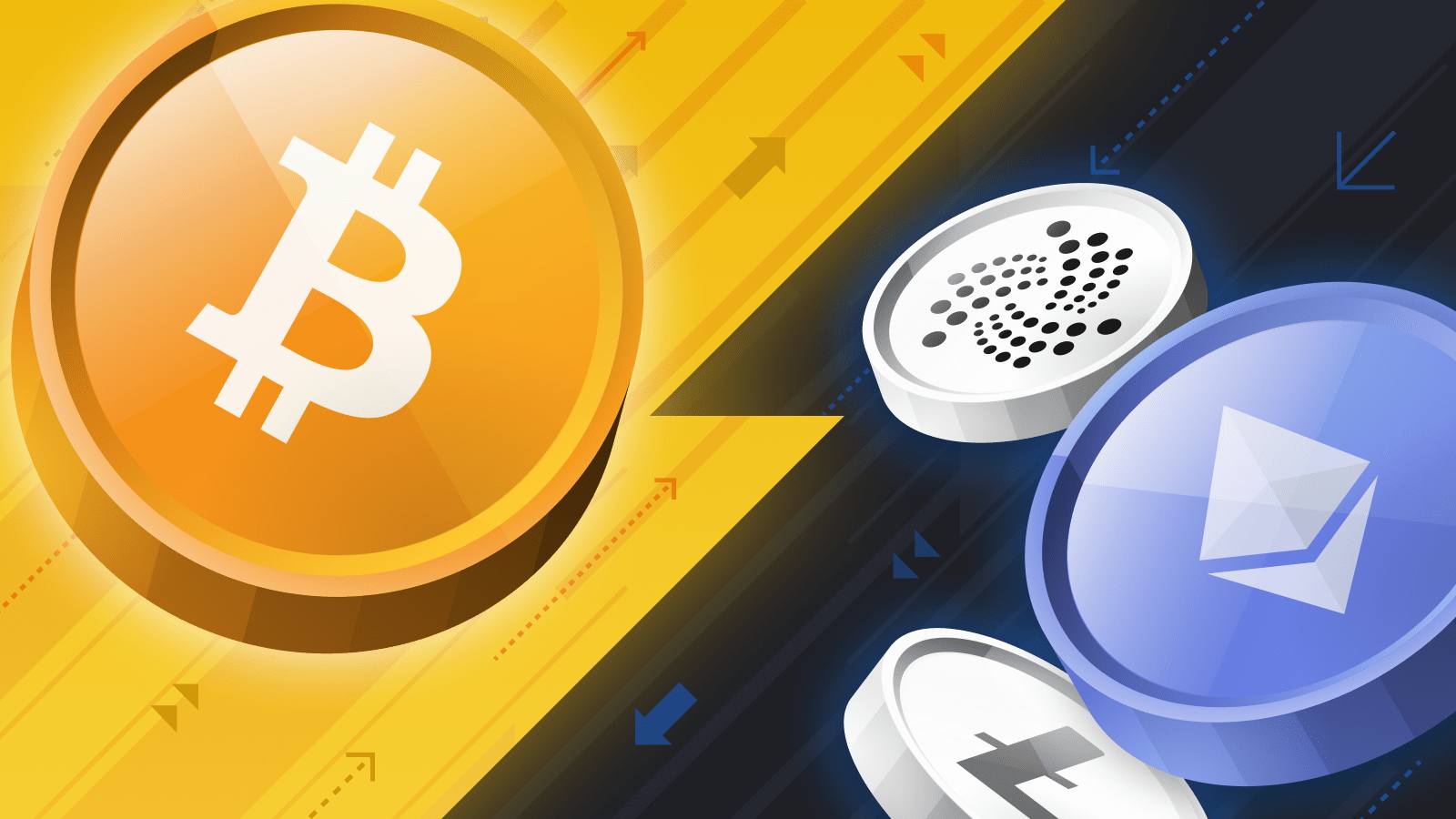
Cryptocurrency is no longer just about Bitcoin. While Bitcoin was the first and remains the largest digital currency, thousands of alternative cryptocurrencies—commonly known as altcoins—have emerged to offer different functionalities, solutions, and investment opportunities.
So, what are altcoins exactly? Are they worth investing in? Which altcoins to buy? And more importantly, when altcoin season starts, how can you maximize your profits? This guide will answer all these questions, providing you with a clear understanding of altcoins, their potential, and how to navigate the ever-evolving crypto market.
What Are Altcoins? Understanding the Basics

The term altcoin is a combination of “alternative” and “coin.” It refers to any cryptocurrency that is not Bitcoin. These digital assets were created to improve upon Bitcoin’s technology or serve different purposes in the blockchain ecosystem. Some offer faster transactions, improved security, or new ways to use blockchain technology beyond just payments.
When discussing what are altcoins, it’s important to categorize them based on their functionality:
- Payment Coins: Designed for transactions (e.g., Litecoin, Bitcoin Cash).
- Stablecoins: Pegged to real-world assets like USD to reduce volatility (e.g., USDT, USDC).
- Smart Contract Platforms: Enable decentralized applications (e.g., Ethereum, Cardano).
- DeFi Tokens: Power decentralized finance projects (e.g., Uniswap, Aave).
- Meme Coins: Inspired by internet culture, often community-driven (e.g., Dogecoin, Shiba Inu).
- Privacy Coins: Focus on anonymous transactions (e.g., Monero, Zcash).
Each category serves a unique purpose in the crypto ecosystem. Understanding these distinctions is essential when deciding which altcoins to buy.
What Are Altcoins and How Do They Differ from Bitcoin?
Many investors wonder, what is an altcoin, and how does it differ from Bitcoin? While Bitcoin was designed as a decentralized digital currency, altcoins often have different technological foundations and use cases. Here are some key differences:
- Consensus Mechanisms: Bitcoin uses Proof-of-Work (PoW), while many altcoins (e.g., Ethereum 2.0, Solana) use Proof-of-Stake (PoS) or other innovative mechanisms for scalability.
- Speed & Scalability: Many altcoins aim to process transactions faster than Bitcoin (e.g., Solana, Avalanche).
- Smart Contracts: Unlike Bitcoin, Ethereum and many other altcoins support smart contracts, enabling decentralized applications (DeFi, NFTs).
- Purpose & Utility: Some altcoins are used for payments, while others power ecosystems for gaming, finance, or supply chain solutions.
These differences make altcoins an attractive investment, but they also come with risks. Unlike Bitcoin, which has solidified itself as digital gold, altcoins are often more volatile and speculative.
Which Altcoins to Buy? Factors to Consider
With thousands of altcoins in circulation, choosing which altcoins to buy can be overwhelming. Here are key factors to consider:
Use Case & Utility
A strong use case increases an altcoin’s long-term viability. Ethereum, for example, is widely used for decentralized applications, making it a top altcoin investment.
Market Capitalization & Liquidity
Larger market cap coins (e.g., ETH, BNB, SOL) tend to be more stable, while smaller cap coins offer higher risk and reward.
Development Team & Roadmap
Check if the project is backed by a solid team and has a well-defined roadmap.
Community & Adoption
A strong community (e.g., Dogecoin, XRP) often leads to sustained interest and potential price appreciation.
Partnerships & Institutional Interest
Altcoins with backing from institutions or strong partnerships (e.g., Chainlink, Polygon) have higher chances of success.
If you’re looking for which altcoins to buy now, Ethereum (ETH), Binance Coin (BNB), and Solana (SOL) remain top choices due to their strong adoption and ecosystem growth.
When Altcoin Season Starts: How to Prepare

Every investor wants to know: when altcoin season starts? This term refers to periods when altcoins significantly outperform Bitcoin, leading to massive gains in the altcoin market.
Signs of Altcoin Season
- Bitcoin Dominance Drops: When BTC dominance falls, it often signals funds flowing into altcoins.
- Altcoin Prices Surge: A broad rally across multiple altcoin sectors suggests the start of an altcoin season.
- Increased Retail Interest: A surge in new crypto investors entering the market.
- Hype & Narrative Cycles: Trends like DeFi, NFTs, or gaming tokens can drive sector-wide altcoin growth.
How to Profit from Altcoin Season
- Diversify Your Portfolio: Invest in various altcoin sectors (DeFi, gaming, L1 blockchains).
- Monitor Market Trends: Stay updated on upcoming projects and trends.
- Take Profits Strategically: Secure profits by selling in increments rather than all at once.
- Use Risk Management: Avoid overexposure to highly volatile assets.
Understanding when altcoin season starts allows investors to position themselves ahead of major market movements.
Risks of Investing in Altcoins

While altcoins offer high reward potential, they also carry significant risks. Here’s what investors should be aware of:
Volatility
Altcoins experience larger price swings than Bitcoin. A 50% price drop in a week is not uncommon.
Regulation Uncertainty
Governments worldwide are still developing regulations for cryptocurrencies, which could impact certain altcoins.
Project Failure
Many altcoins fail due to lack of adoption or poor management. Always research before investing.
Security Risks
Scams, rug pulls, and smart contract exploits are common in the altcoin space.
Being aware of these risks helps investors make better decisions when choosing which altcoins to buy.
Future of Altcoins: Will They Replace Bitcoin?
Some investors believe that altcoins will eventually surpass Bitcoin, while others argue that Bitcoin’s dominance will remain unchallenged. So, what does the future hold?
Altcoins’ Growth Potential
- Ethereum 2.0: Moving to PoS could make ETH the top blockchain.
- DeFi & NFTs: These ecosystems will continue to drive demand for altcoins.
- Layer 2 Solutions: Scaling solutions like Polygon enhance blockchain efficiency.
Bitcoin’s Stronghold
- Institutional Adoption: Many large firms prefer Bitcoin as a store of value.
- Regulatory Clarity: Bitcoin is less likely to face a regulatory crackdown compared to some altcoins.
- Security & Decentralization: Bitcoin remains the most secure blockchain network.
While Bitcoin may always remain the “gold standard” of crypto, what are altcoins if not innovative alternatives? They serve essential roles in the industry and continue to push technological advancements.
Conclusion
What Are Altcoins and Should You Invest? By now, you should have a solid understanding of what altcoins are and how they differ from Bitcoin. Altcoins offer exciting investment opportunities, but they also come with risks. Knowing which altcoins to buy and when altcoin season starts can help maximize gains while minimizing losses.
So, are you ready to explore the world of altcoins? Whether you’re looking for the next big investment or simply expanding your crypto knowledge, understanding what are altcoins is the first step toward making informed financial decisions in the blockchain space.
This guide covers everything from what is an altcoin to which altcoins to buy now. As the market continues to evolve, staying informed and adaptable is the key to success.























